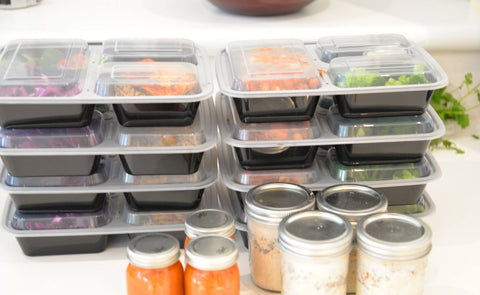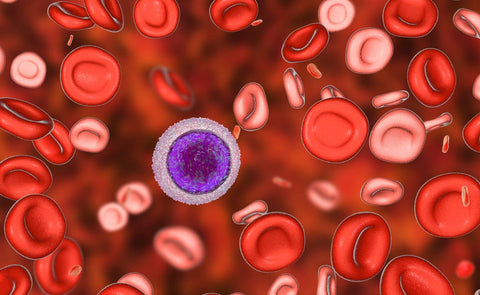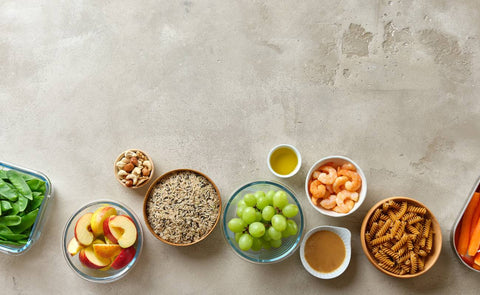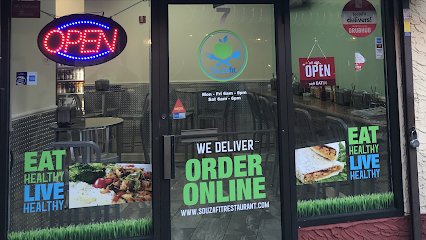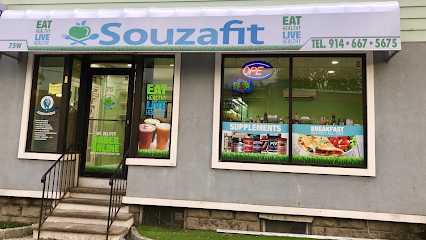Navigating through endless aisles and meal options can easily inflate your grocery bill, but a strategic approach can make a significant difference. Meal prepping is a practical technique that not only brings organization to your eating habits but also has a profound impact on your finances. By planning your meals in advance, you can save substantial amounts of money that would otherwise be spent on sporadic takeout and unplanned grocery trips.
With meal prepping, you gain control over portion sizes and food choices, which can lead to additional savings and healthier eating. Purchasing ingredients on sale and cooking in bulk allows you to maximize savings while ensuring your diet is nutritious and satisfying. This approach also minimizes food waste, as each ingredient serves a purpose in your weekly menu.
Overall, meal prepping adds intention to your food budget, reducing unnecessary expenses and aligning with financial goals. As you explore this approach, you'll find it possible to maintain a balanced diet while keeping more money in your pocket. Dive in, and discover how this simple habit can lead to lasting financial benefits.
The Basics of Meal Prepping
Meal prepping involves planning and preparing meals in advance, allowing you to save time and money. With the right tools and methods, you can streamline your cooking process while ensuring nutritious meals.
Defining Meal Prepping
Meal prepping is the process of planning and preparing meals ahead of time. It typically involves deciding on a meal plan for the upcoming days or week and preparing meals or parts of them in advance.
You can cook entire meals, chop vegetables, or portion out snack bags. This approach saves time by minimizing daily cooking and reduces costs by limiting impulse food purchases and takeout.
By planning meals, you control portion sizes and ingredients, supporting healthier eating habits. Whether it's cooking large batches for the week or simply organizing ingredients, meal prepping helps maintain consistency in your eating routine.
Essential Meal Prep Tools
To effectively meal prep, several tools can make the process smooth and efficient. Glass containers, such as Pyrex, are excellent for storing meals because they are durable and microwave-safe.
Tupperware and airtight containers keep your food fresh while being stackable for easy storage. A cutting board and sharp knife are essential for preparing ingredients.
Consider an instant pot for cooking large batches of food quickly. Measuring cups help ensure accurate portion sizes. Lastly, a set of quality pots and pans is crucial for cooking various types of meals efficiently. Ensuring you have these tools on hand simplifies the task, making meal prep easier to integrate into your routine.
Strategies for Saving Money
Effectively managing your grocery budget can lead to significant savings. Focusing on smart shopping techniques and reducing food waste can also help lower your grocery bill.
Budgeting for Groceries
Start by setting a clear grocery budget. Evaluate your weekly spending and pinpoint areas for improvement. Use tools like spending trackers or budgeting apps to monitor expenses. Plan meals for the week, highlighting cost-effective ingredients. Stick to your list to avoid impulse purchases.
Consider buying in bulk for items you frequently use. Large packages often cost less per unit. When creating your grocery budget, remember to account for occasional discounts and sales, allowing you to take advantage of lower prices.
Shopping Smart
Smart grocery shopping is crucial for saving money. Compare prices across different stores to find the best deals. Use apps or websites that track local sales and store discounts. Loyalty cards can also provide additional savings.
When in the store, choose generic or store-brand products instead of name brands. These alternatives often have the same quality at a lower price. Avoid shopping when hungry to prevent unnecessary purchases. Staying focused on your list helps manage both budget and time.
Reducing Food Waste
Minimizing food waste is an effective way to reduce your food costs. Begin by planning meals carefully and using perishable items first. Invest in quality food containers to keep leftovers fresh longer.
Track what you commonly waste to make informed decisions in future shopping trips. Incorporating ingredients from previous meals into new dishes ensures everything is used. Consider freezing extras to prolong their shelf life. Creative meal plans that adjust to the week’s purchases can help avoid throwing food away.
Meal Prepping as a Time Saver
Meal prepping can significantly streamline your daily routine by reducing the need to cook multiple times. By organizing your meals in advance, you optimize your time in the kitchen and ensure that you always have a nutritious meal ready to go.
Efficient Cooking Methods
Use batch cooking to prepare large quantities of food in one session. Focus on versatile ingredients like proteins and grains that can be repurposed in different meals. This approach keeps your time in the kitchen to a minimum.
Invest in meal prep containers to store your meals efficiently. These containers help you refrigerate individual portions, preventing the need for daily cooking.
Utilize simple, time-saving kitchen supplies, such as slow cookers or instant pots. These devices allow you to cook meals with minimal supervision. You can set them and forget, leaving you free to focus on other tasks while your meal is cooking.
Planning for Leftovers
Purposefully plan to have leftovers by cooking larger meals with multiple servings. This ensures you have extra meals without additional cooking sessions, saving time throughout the week.
Properly store leftovers in airtight meal prep containers to keep them fresh. This practice not only saves time but also reduces food waste.
Create a weekly meal plan that includes variations on your leftovers. Incorporating leftovers into new dishes, such as using roasted chicken in salads or wraps, maximizes both your prep efforts and the flavors in your meals.
Health Benefits of Meal Prepping
Meal prepping offers numerous health benefits beyond convenience. By planning your meals in advance, you gain control over nutritional intake, reduce the risk of unhealthy last-minute food choices, and ensure balanced meals.
Nutritional Control
When you prepare meals ahead, you tailor your diet to meet specific nutritional needs. This practice allows you to include a variety of food groups, ensuring balanced nutrient intake.
Planning meals in advance helps you avoid processed foods often high in sodium, sugars, and unhealthy fats. You can focus on incorporating whole grains, lean proteins, and plenty of vegetables, making it easier to maintain a nutritious and balanced diet.
With careful preparation, you reduce the temptation of unhealthy convenience foods, supporting better long-term health outcomes.

